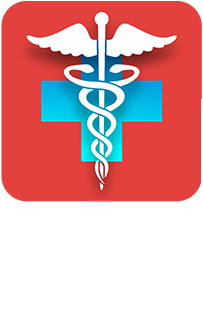CONSULTING
A medical billing and coding consultant is an expert in medical billing and coding, who sells his or her advice to those who need it. Consultants in medical billing and coding offer expert advice and guidance to healthcare organizations to optimize their revenue cycle management processes. Here are some key aspects of consulting services in this domain:
Compliance and Regulations: Consultants ensure that the organization adheres to coding and billing regulations, such as ICD-10, CPT, and HIPAA, to avoid compliance issues and potential penalties.
Revenue Optimization: They help identify missed revenue opportunities, reduce claim denials, and improve reimbursement rates.
Efficiency Improvement: Consultants recommend workflow improvements, staff training, and the implementation of technology solutions to streamline billing and coding processes.
Coding Accuracy: They assess the accuracy of medical coding and provide recommendations for improvement.
Staff Training: Consultants may also provide training to existing billing and coding staff to enhance their skills and keep them up to date with industry changes.
TRAINING
Training and development are the most important components of our capacity to constantly provide high-quality services. To ensure that staff members meet our clients’ expectations, we use the best technology, training, processes, and people. Before one of our team members begins work at our offshore delivery center, we ensure that they have the necessary skills and proficiency by completing our modular training. Here’s an overview of what you can expect from a typical medical billing and coding training program:
Medical billing and coding training programs are offered in various formats to accommodate different learning preferences and schedules:
- Online Programs: Many schools and institutions offer online courses, which provide flexibility for students to study at their own pace and on their own schedule.
- In-Person Programs: Traditional classroom-based programs are available at vocational schools, community colleges, and universities.
The curriculum of a medical billing and coding training program covers a range of topics related to healthcare coding and billing. Typical courses may include:
- Medical Terminology: Understanding medical terminology is crucial for accurate coding and billing.
- Anatomy and Physiology: A basic knowledge of the human body helps coders understand medical records and assign the correct codes.
- ICD-10 and CPT Coding: Training programs teach the use of the International Classification of Diseases, 10th Edition (ICD-10) and Current Procedural Terminology (CPT) code sets for accurate coding.
- Health Insurance Portability and Accountability Act (HIPAA) Compliance: Understanding patient privacy and data security regulations is essential.
- Medical Billing Procedures: Students learn how to generate claims, submit them to insurance companies, and follow up on claims.
- Electronic Health Records (EHR) Systems: Familiarity with EHR software and electronic claims submission is often included in the curriculum.
- Medical Billing and Coding Software: Training on software commonly used in the industry for coding and billing tasks.
Many training programs provide hands-on experience or practical exercises to help students apply what they’ve learned. This might include coding practice, simulated billing scenarios, and working with real healthcare records (while ensuring patient privacy).
Many training programs are designed to prepare students for industry-recognized certifications, such as:
- Certified Professional Coder (CPC): Offered by the American Academy of Professional Coders (AAPC), this certification focuses on medical coding.
- Certified Professional Biller (CPB): Also offered by the AAPC, this certification focuses on medical billing.
- Certified Coding Specialist (CCS): Offered by the American Health Information Management Association (AHIMA), this certification emphasizes hospital-based coding.
The duration of medical billing and coding training programs can vary. Short certificate programs may take a few months, while more comprehensive programs may last a year or longer.
